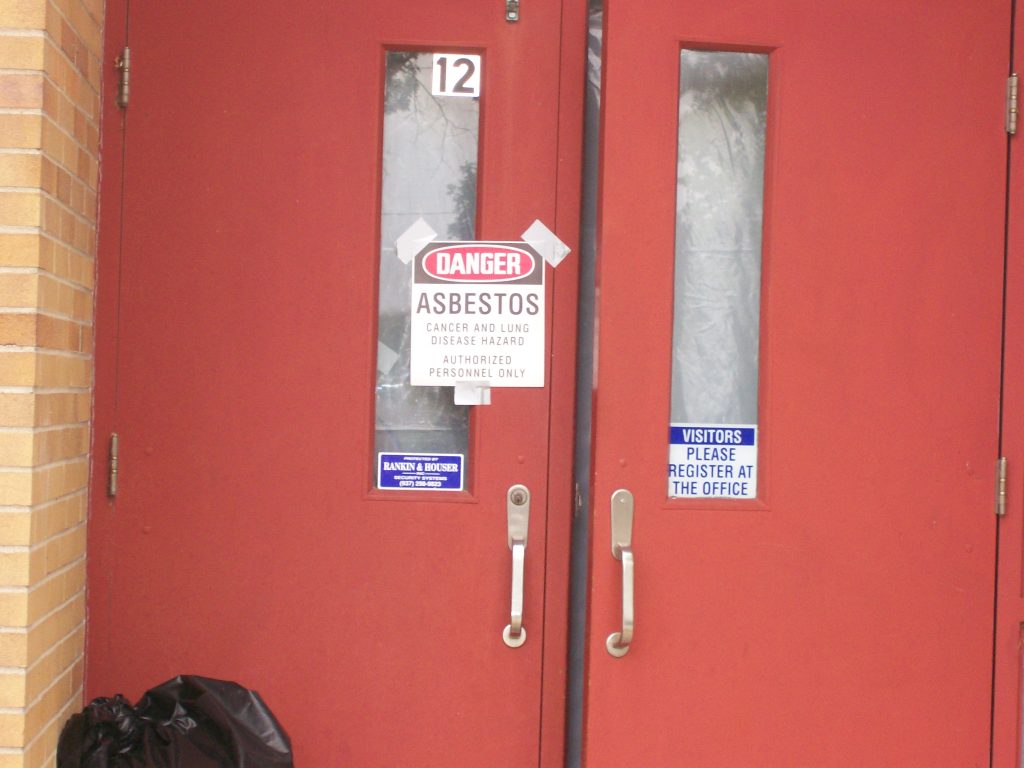 This scenario is not hard to imagine: you are driving along the road, and you get into an accident; however, the other vehicle is not just a regular car owned by a private citizen, but it is a dump truck owned by the local government. When suing a local governmental entity such as a sanitation department or police station, the injured party may face obstacles in naming precise owners of public vehicles or following procedural rules. A recent case out of St. Charles Parish demonstrates what kinds of procedural obstacles a plaintiff may face. It also helps answer the question; what happens if I name the wrong defendant in a lawsuit? Is my case over?
This scenario is not hard to imagine: you are driving along the road, and you get into an accident; however, the other vehicle is not just a regular car owned by a private citizen, but it is a dump truck owned by the local government. When suing a local governmental entity such as a sanitation department or police station, the injured party may face obstacles in naming precise owners of public vehicles or following procedural rules. A recent case out of St. Charles Parish demonstrates what kinds of procedural obstacles a plaintiff may face. It also helps answer the question; what happens if I name the wrong defendant in a lawsuit? Is my case over?
On January 13, 2010, three prisoners in the custody of the St. Charles Parish Sheriffs were being transported in a vehicle owned by the Sheriff’s office when it collided with a dump truck. As a result of the accident, the three alleged they had suffered “severe and grievous injury to body and mind.” On January 12, 2011, they filed a lawsuit against the Parish of St. Charles as the owner of the dump truck, the driver of the dump truck, and its liability insurer. Then the plaintiffs added the Parish of St. Charles Sheriff’s Office as the owner of the prisoner transportation vehicle and the employer of the dump truck driver.
After discovery, St. Charles Parish filed for a motion of summary judgment, asking the court to decide the case in their favor because the allegations were legally insufficient because the Parish did not own the dump truck. In support of its motion, the Parish attached a Certificate of Ownership, demonstrating the St. Charles Parish Sheriff’s office owned the dump truck. The trial judge granted the motion. Subsequently, Greg Champagne, the Sheriff of St. Charles Parish, filed exceptions of prescription, which essentially asked the court to dismiss the lawsuit because the plaintiff did not file the case on time or failed to follow procedural rules. The court also granted the exceptions of prescription, and the plaintiffs appealed.
 Driving while on the job can be a common occurrence for many employees. Sometimes you may even use your personal vehicle on a workplace errand. If so, beware; Accidents happen, and your employer’s insurance may not cover you.
Driving while on the job can be a common occurrence for many employees. Sometimes you may even use your personal vehicle on a workplace errand. If so, beware; Accidents happen, and your employer’s insurance may not cover you.  Louisiana Personal Injury Lawyer Blog
Louisiana Personal Injury Lawyer Blog


 Aquisitive Prescription. It is a strange-sounding set of words, yet it can be vital in proving ownership of land and property in Louisiana. What exactly is it? The subsequent lawsuit helps answer that question and the following one: How can I prove ownership of land through acquisitive prescription in Louisiana?
Aquisitive Prescription. It is a strange-sounding set of words, yet it can be vital in proving ownership of land and property in Louisiana. What exactly is it? The subsequent lawsuit helps answer that question and the following one: How can I prove ownership of land through acquisitive prescription in Louisiana? Although most people have heard of both state and federal courts, many do not know when a party in a lawsuit can move a case to a different court. This happened to Howard Zeringue, who first filed a lawsuit in Louisiana state court, but soon found himself in the United States District Court for the Eastern District of Louisiana after the company he sued removed the case to federal court. This case helps answer the question; My lawsuit was removed to Federal Court. What does that Mean?
Although most people have heard of both state and federal courts, many do not know when a party in a lawsuit can move a case to a different court. This happened to Howard Zeringue, who first filed a lawsuit in Louisiana state court, but soon found himself in the United States District Court for the Eastern District of Louisiana after the company he sued removed the case to federal court. This case helps answer the question; My lawsuit was removed to Federal Court. What does that Mean? This scenario is not hard to imagine: you are driving along the road, and you get into an accident; however, the other vehicle is not just a regular car owned by a private citizen, but it is a dump truck owned by the local government. When suing a local governmental entity such as a sanitation department or police station, the injured party may face obstacles in naming precise owners of public vehicles or following procedural rules. A recent case out of St. Charles Parish demonstrates what kinds of procedural obstacles a plaintiff may face. It also helps answer the question; what happens if I name the wrong defendant in a lawsuit? Is my case over?
This scenario is not hard to imagine: you are driving along the road, and you get into an accident; however, the other vehicle is not just a regular car owned by a private citizen, but it is a dump truck owned by the local government. When suing a local governmental entity such as a sanitation department or police station, the injured party may face obstacles in naming precise owners of public vehicles or following procedural rules. A recent case out of St. Charles Parish demonstrates what kinds of procedural obstacles a plaintiff may face. It also helps answer the question; what happens if I name the wrong defendant in a lawsuit? Is my case over? Some doors, such as bathroom doors, are heavy and have quick automatic closing mechanisms attached. If a door of that nature hits you in the back on your way and knocks you down, who is liable? The following case out of New Orleans shows how courts deal with door-closing mechanisms and trip-and-fall lawsuits.
Some doors, such as bathroom doors, are heavy and have quick automatic closing mechanisms attached. If a door of that nature hits you in the back on your way and knocks you down, who is liable? The following case out of New Orleans shows how courts deal with door-closing mechanisms and trip-and-fall lawsuits.  Activities on the water carry inherent risks. If you are injured while on the water, laws of admiralty and maritime jurisdiction generally rule. There are also allowances to invoke admiralty jurisdiction for injuries on land. To do so, one must satisfy conditions of both location and connection with maritime activity. But what happens if you are injured on a boat on land? Can you file a lawsuit with maritime claims? The following lawsuit out of Manchac, Louisiana, helps answer this question in the context of a prescription argument.
Activities on the water carry inherent risks. If you are injured while on the water, laws of admiralty and maritime jurisdiction generally rule. There are also allowances to invoke admiralty jurisdiction for injuries on land. To do so, one must satisfy conditions of both location and connection with maritime activity. But what happens if you are injured on a boat on land? Can you file a lawsuit with maritime claims? The following lawsuit out of Manchac, Louisiana, helps answer this question in the context of a prescription argument.  Discrimination in the workplace should never be accepted. If you feel that you have been discriminated against for age or disability reasons, the law allows you to seek damages. A lawsuit of that nature is not unlike others; proof and evidence are required to proceed with your claims. The following case out of New Orleans shows why sufficient evidence is required to proceed with a discrimination or hostile workplace claim.
Discrimination in the workplace should never be accepted. If you feel that you have been discriminated against for age or disability reasons, the law allows you to seek damages. A lawsuit of that nature is not unlike others; proof and evidence are required to proceed with your claims. The following case out of New Orleans shows why sufficient evidence is required to proceed with a discrimination or hostile workplace claim.  Generally, when you ask an insurance agent for a specific policy, you expect them to honor your request. But what happens when your insurance agent doesn’t procure the coverage you requested for? The following case is an example of a property owner who believed he maintained insurance when he did not.
Generally, when you ask an insurance agent for a specific policy, you expect them to honor your request. But what happens when your insurance agent doesn’t procure the coverage you requested for? The following case is an example of a property owner who believed he maintained insurance when he did not.  Insurance policies are often lengthy and very complicated. Therefore, understanding who may be liable when an injury occurs is critical, as failure to do so may lead to complex and expensive court proceedings. The following Iberville Parish case demonstrates the problems that arise when multiple insurance companies and policies are involved in one lawsuit and when evidence is not properly admitted.
Insurance policies are often lengthy and very complicated. Therefore, understanding who may be liable when an injury occurs is critical, as failure to do so may lead to complex and expensive court proceedings. The following Iberville Parish case demonstrates the problems that arise when multiple insurance companies and policies are involved in one lawsuit and when evidence is not properly admitted.  A disabling workplace injury can be a nightmare for an employee who suffers physical pain, mental side effects, loss of income, and the uncertainty of litigation. And when large sums of money are involved, an employer will want to fight tooth and nail to avoid liability. This can be particularly distressing when an employee wins at trial only to find the decision has been appealed.
A disabling workplace injury can be a nightmare for an employee who suffers physical pain, mental side effects, loss of income, and the uncertainty of litigation. And when large sums of money are involved, an employer will want to fight tooth and nail to avoid liability. This can be particularly distressing when an employee wins at trial only to find the decision has been appealed.